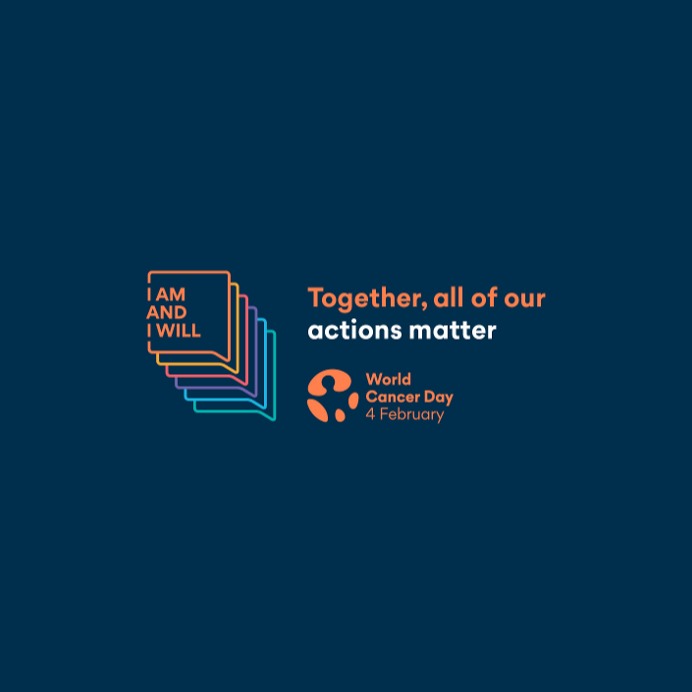By continuing to use our site, you consent to the processing of cookies, user data (location information, type and version of the OS, the type and version of the browser, the type of device and the resolution of its screen, the source of where the user came from, from which site or for what advertisement, language OS and Browser, which pages are opened and to which buttons the user presses, ip-address) for the purpose of site functioning, retargeting and statistical surveys and reviews. If you do not want your data to be processed, please leave the site.
The Voice of People With Breast Cancer
Education
Our Voices Blog
Tag : breast cancer
Triple Negative Breast Cancer: Shoulda, Woulda, Coulda and a TIP
If you’re going to be told you have breast cancer, you want to be able to say, “They caught it early.” With Triple Negative Breast Cancer (TNBC) - an aggressive, difficult to treat type of breast cancer - early detection is especially important.
Immunotherapy and Breast Cancer Explained: Thoughts From a Researcher Who Has Also Had Triple Negative Breast Cancer
Traditional cancer therapies (such as chemotherapy and radiation therapy) have shown widespread success against various cancer types, but are known to have toxic, undesirable side effects as they do not selectively kill cancer cells and therefore actively damage healthy cells as well. This is where immunotherapy comes into play. Immunotherapy is a form of therapy that uses the body’s own immune system to fight the cancer within it. Think of your body as a battlefield and your immune system the frontline of soldiers, ready to attack foreign invaders. The problem with cancer cells is that they are not easily recognized as foreign pathogens (such as viruses or bacteria) because they originate in the host’s body and mutate from normal cells. It has long been postulated that the immune system could be used to target and kill cancer cells, but the process of figuring out how to harness this ability is not a simple task.
Eight Items That Helped Me Recover from Breast Cancer Surgery
The day my doctor told me I had breast cancer was the same day I met my surgeon and was scheduled for a partial mastectomy (otherwise known as a lumpectomy), breast-conserving surgery. It’s not surprising. The Canadian Breast Cancer Society attributes breast cancer as being the most commonly diagnosed cancer among Canadian women and the second leading cause of cancer death in Canada, so booking a surgery right away is a priority.
Parenting in the Midst of Trauma
My oldest son is 17. Then 14, and 10- and 6-year-old twins. While I don’t claim to be any kind of parenting expert, I’ve had enough experience now to know a thing or two.
This World Cancer Day, Commit to Act
February 4th is recognized as World Cancer Day, a global initiative led by the Union for International Cancer Control (UICC) that is focused on awareness, education and action. The goal of this day is to create a world where death from cancer is preventable and where everyone can access proper care and life-saving treatment.
Why Tamoxifen is a Pain in my Ass and Other Bodily Infractions
Two days ago, my lower back seized and then, seemingly stuck. Never have I ever had back problems. Yet, here I am frozen with body-gripping spasms. I can’t roll over in bed, stand up straight or even wipe my bum without yelping loudly. Thank God, and I don’t say this lightly, I was able to call a friend (who suffers from chronic back pain), who called her chiropractor, who graciously booked me in at the end of his appointment-packed day.
Research Highlights from the 2020 San Antonio Breast Cancer Symposium
The San Antonio Breast Cancer Symposium is the annual breast cancer conference that brings together researchers, clinicians, patients and manufacturers from all over the world to discuss the latest breast cancer research. While the 2020 symposium was held virtually, there was still an incredible amount of new research shared.
Will Pharmacare Finally Be a Reality in Canada?
While Canada has a universal healthcare system, this system does not universally cover prescription drugs, nor does it address out-pocket-costs that many, including breast cancer patients, face when they navigate our healthcare system. Every country that has a universal healthcare system also has universal prescription drug coverage – every country but Canada. This results in unequal access to treatment based on a variety of factors, such as where a person lives, the type of insurance they have, their age, their income, and more. To address this, many have suggested implementing national pharmacare – a universal drug coverage system that is publicly funded. We’ve written on pharmacare in the past, on what it is and why it should matter to breast cancer patients and on where Canada’s federal parties stand on pharmacare.
Our Top Blogs From 2020!
2020 was eventful, to say the least. It was a year where many had to shift and pivot from their everyday normal. Appointments were cancelled, surgeries were delayed and rescheduled, and patients found themselves having to access their doctors and healthcare team through a screen. Breast cancer patients had to not only worry about their risk of contracting the COVID-19 virus, but they also had to maintain their cancer care as best they could, something that was a challenge both mentally and physically.
Three Things to Know Before Your Lumpectomy
I’m a talker. I like to communicate and sometimes, okay often, I’m an over-sharer. I need to know what’s going on and why and in my version of yin and yang, I believe that because I’m an open book everyone else will be too. Except, not so much.
CBCN In Action in 2020: Our Year in Review
As the year slowly winds down, we look back on some of the many activities and projects that CBCN has participated in, developed, or updated. These efforts reflect our ongoing commitment to that ensure that the voice and perspectives of breast cancer patients are reflected in the work that we do.
Recognizing CBCN’s Breast Cancer Awareness Month Fundraisers
October is Breast Cancer Awareness Month and each year, we see a surge of individuals, companies, and organizations joining the conversation to raise awareness of breast cancer. Amid the ongoing COVID-19 pandemic, people and organizations participated in virtual events, used their social media to raise awareness, and donated to various breast cancer organizations.
Making the Right Choice
Recently, after spending eight hours with abdominal pain so intense I was doubled over, I conceded to my sister Liz, who insisted a trip to the hospital was necessary and crawled downstairs, ordered an Uber, pulled a patterned facemask over my nose and mouth and went. Twelve hours, three hits of morphine and one magnetic resonance imaging (MRI) scan of my lower abdominal organs later, the emergency room doctor told me a lesion on the right side of my liver was the culprit. Based on the scans I’d had taken of my major organs prior to my breast cancer surgery, the lesion was new and potentially the result of the original tumor and/or the treatment I’d received post-operation. An ultrasound followed, revealing the lesion’s 5cm length by 5cm depth by 5cm width. A second MRI has been scheduled.
Feeling Pain and Sensations in the Area of Your Removed Breast? You May be Experiencing Phantom Breast Syndrome
Some breast cancer patients who had a mastectomy have reported feeling painful and non-painful sensations in the area of the breast that was removed. This condition, known as phantom breast syndrome (PBS), usually start in the first year after a mastectomy. Sensations due to PBS usually occur in the chest, armpit, surgical scar, and inner arm and last far beyond the expected time for post-surgical pain. The prevalence of PBS is not exactly known, most likely due to a lack of reporting as patients either feel like it is not that big of a deal or because they find it hard to describe. PBS has been reported to affect anywhere between 4% to 56% patients; other studies report that it affects anywhere between 10% to 55% of women.
Three Sisters Fighting Cancer Together
I am a 51-year-old woman from the Loire Valley. I live near Orléans, 120 kilometres south of Paris. I grew up surrounded by women. I am the youngest of five sisters; twenty years separate me from my oldest sister and ten years separate me from the fourth one. Our mother received her breast cancer diagnosis in 1985 and at the time, cancer care was awful. My father died from a cardiac arrest in July 1986, probably caused by grief. My mother was brave and fought as much as she could, but she passed away in May of 1989 when I was 20 years old. Because of her breast cancer diagnosis, my sisters and I have closely monitored our risk of developing breast cancer.
Blood Clots and Cancer: What Is It and Are You at Risk?
When you have a cut or an injury, blood clots are useful in stopping the bleeding in order to help your body heal. However, there can be a negative side to blood clots. If a blood clot develops in a vein, which is called a venous thromboembolism (VTE) or venous thrombosis, or if it develops in a deep vein, which is called a deep vein thrombosis (DVT), there may be cause for concern.
Sexual Health and Intimacy Tips for Breast Cancer Patients
Sex may be something that isn’t frequently discussed by doctors or oncologists or even friends, but the sexual changes and adjustments you go through following a breast cancer diagnosis can be enormous for you and your partner, depending on how big a part it was in your life before diagnosis and treatments.
Lymphedema Management: Short and Simple Exercises for You
Lymphedema is abnormal swelling of the arms, hands, breast, or torso. Breast cancer-related lymphedema generally occurs when the lymph nodes or the lymphatic vessels are damaged or removed following breast cancer treatment. When this happens, blockage in the lymphatic system prevents lymph fluid from properly draining which is what leads to the swelling.
Why It’s Important to Be Your Own Advocate
The Merriam-Webster dictionary defines ‘advocate’ as a verb that means “to support or argue for”. ‘Self-advocacy is defined as “the action of representing oneself or one's views or interests”. While the word, advocate might make us think of protests or political signs, that is not always the case. As someone with a breast cancer diagnosis, self-advocacy and being an advocate simply means being a part of your health care team. It means knowing yourself and speaking up for yourself to make sure that your cancer care needs are met. Self-advocacy is part of participatory medicine where “patients are actively working alongside their physicians to choose the best course of cancer treatment.”
Breast Cancer Math
Before I was diagnosed, I rarely thought about breast cancer. When I did it was once a year, usually in June, as I was planning the line-up of pink-ribbon beauty products I wanted to feature in the upcoming October issue of FASHION, Salon, 29Secrets or whatever other magazine I was working for at the time. Other than that, it just wasn’t on my radar. No disease was really. My inner circle was healthy, well, that is if you didn’t count my mom’s dad dying of liver sclerosis from alcoholism when I was around five or my paternal grandmother passing from Alzheimer’s when I was in my early thirties.























